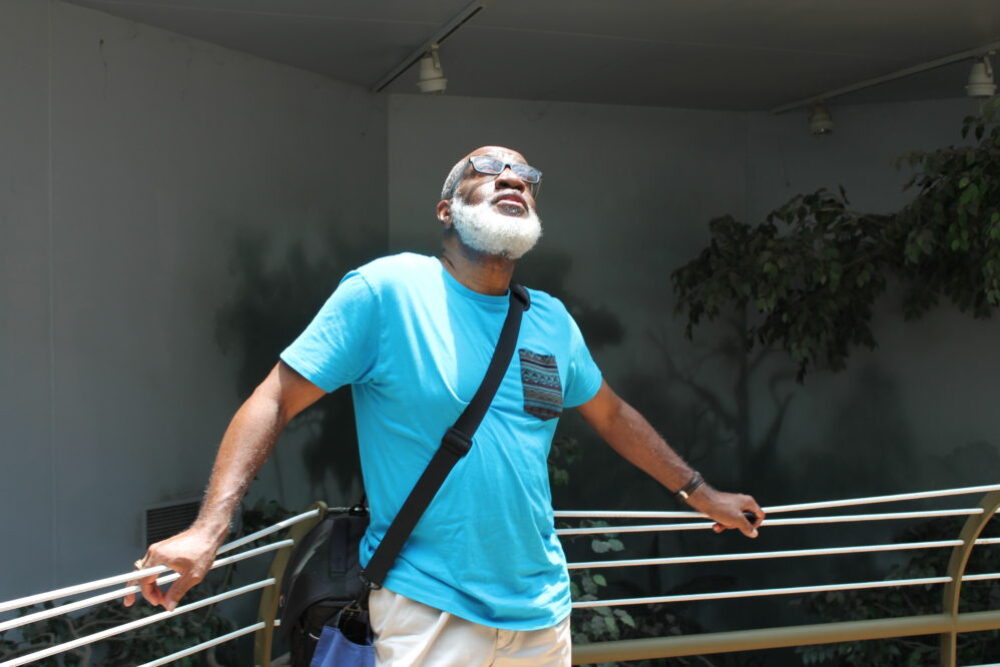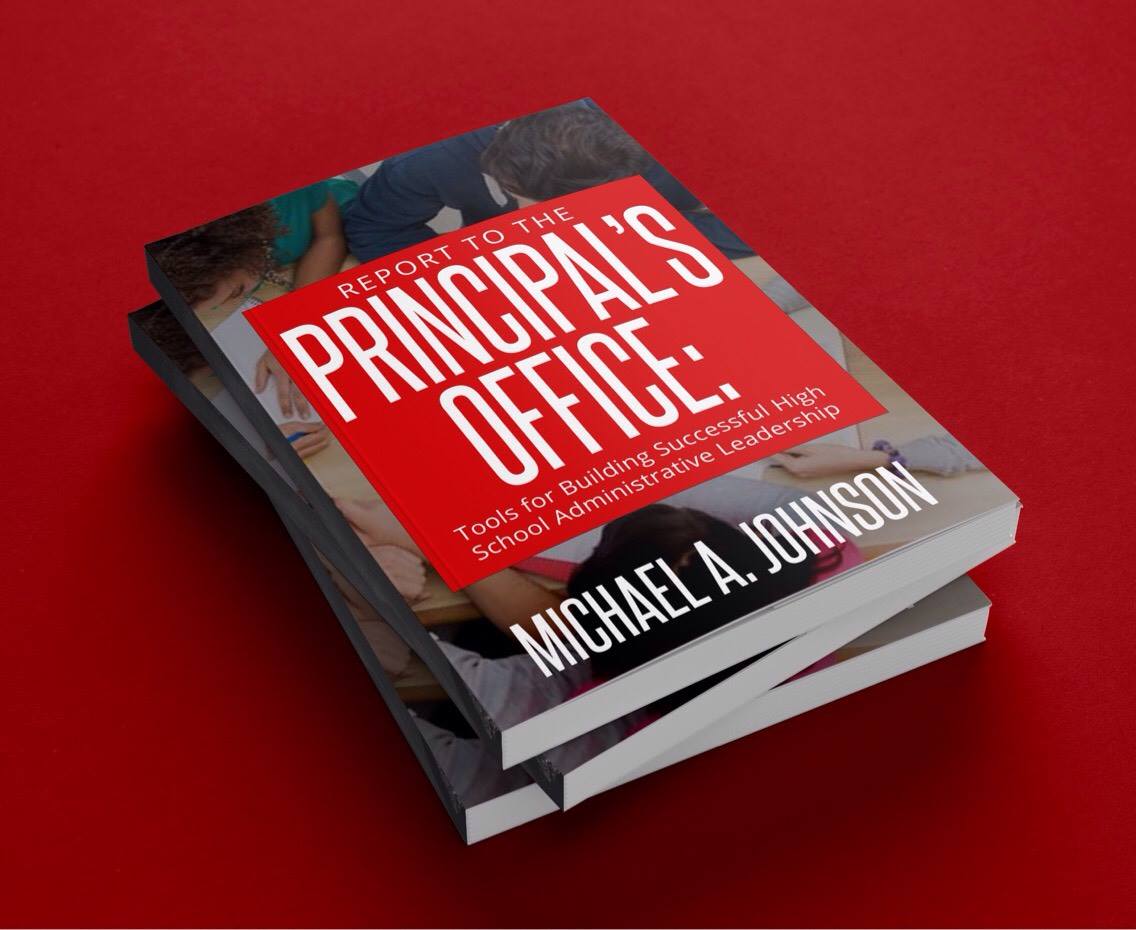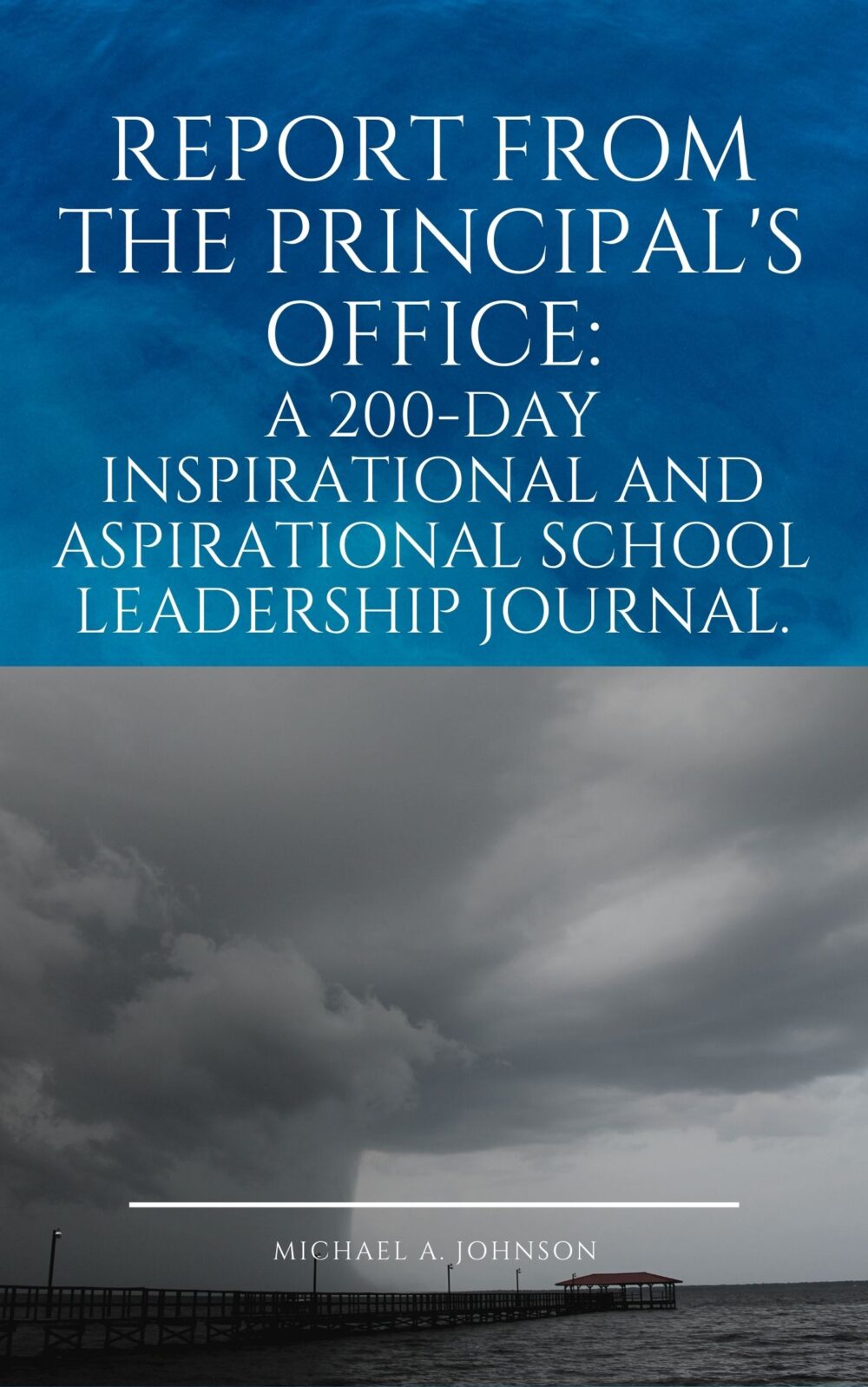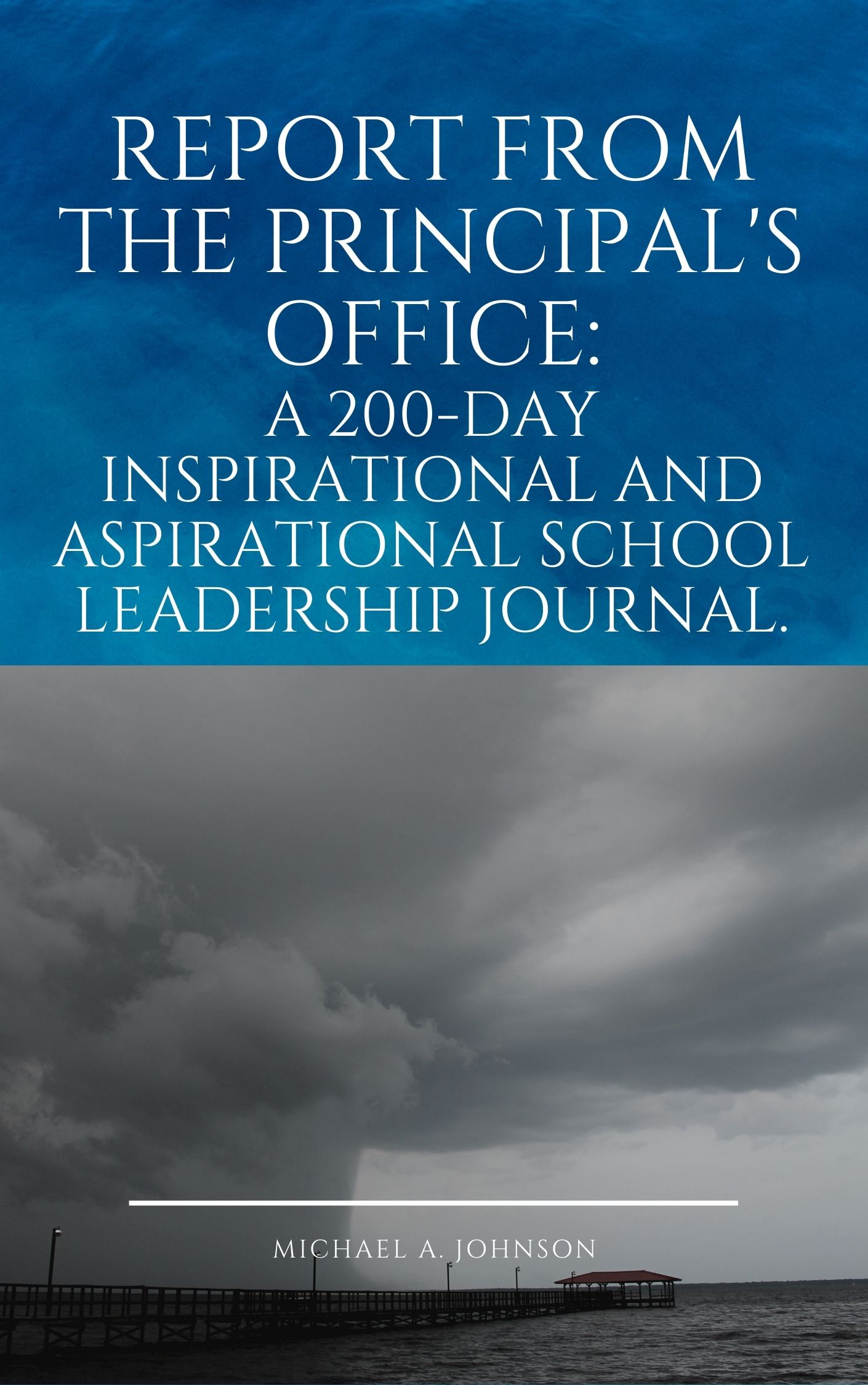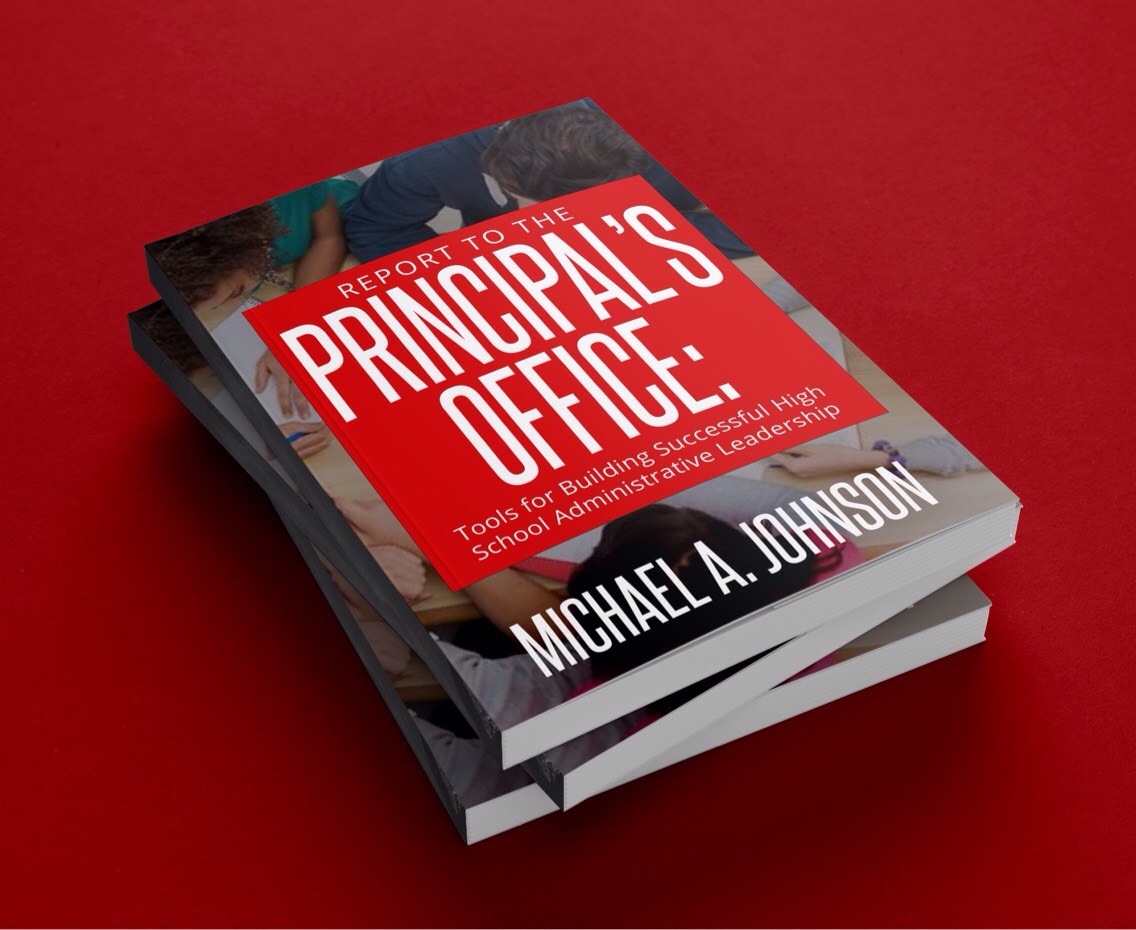Professional educators should be careful about what they post on social media platforms. I speak specifically to those who presently serve or aspire to be an assistant principal, principal, deputy superintendent, superintendent, or district-level administrator. You could be dealing with folks in powerful positions who are guided by and operating in a mean, ugly and wanting to hurt you or your kids’ spirit. Stay calm and focused, lead with your mind and leave your hyper-emotions behind, and engage in affirming and gaining power for those disenfranchised and dismissed students of our nation who are under your care. Think of the immense impact you can have on these children if you can remain in or get into a school-based or district-level leadership position. Don’t let your adversaries know your thoughts; act audaciously and powerfully, and with student success supporting intentionality, but don’t talk about those actions publicly. Every highly valued and highly effectual school leader is a “rule maker-braker-bender.” You want to be able to say after you have acted boldly on behalf of your students (tongue firmly in cheek and a contrived look of sincere contrition), “Oh my goodness, I didn’t know I couldn’t do that, (and since it’s too late now), I am so sorry, and please accept my sincere apology!” (hopefully, my former superintendent won’t see this!:-) Remember, your positive and thoughtful actions can make a profound difference in the lives of your students.
Tag Archives: school administrators
School Employee Disciplinary Procedures and Outcomes are Complex. And so, Just a Brief Note For Aspiring School-Based Leaders.
School Employee Disciplinary Procedures and Outcomes are Complex. And so, Just a Brief Note For Aspiring School-Based Leaders.
“Maryland teacher under investigation, ‘reassigned’ out of classroom after video shows students unbraiding hair, painting his nails in class…”
There’s a lot to unpack here…
This blog post is dedicated to those educators aspiring to become school-building leaders (APs or principals). My goal is to shed some light on a highly complex topic of utmost importance in any school-based supervisory experience. I’ll also discuss some preventative pre-crises actions that those desiring to be school-based administrators should consider. A brief, outsider “first glance” look can be very deceiving regarding public school employees’ disciplinary procedures and final determination outcomes. I aim to walk you through this complex (although very common) public education phenomenon, highlighting several vital points that must be considered:
First, any public (civil service) school employee who is being either investigated (reassigned while receiving full pay, including all scheduled step increases) or disciplined has a First Amendment right to speak publicly, reach out to print or electronic news media sources, wage a campaign on social media platforms, and do radio/TV. interviews, contact elected officials (note exception: the district’s school board members should not get involved during the course of the investigation), speak at public meetings, etc. about the case “as they perceive it” (except for naming the possible students involved), they can also rant endlessly about the “wrongness,” “silliness,” incompetence, racism, bigotry, revengefulness, and any other so-called alleged bad acts against them by the school administrators or the school district involved.
However, the school administrators and district officials involved, based on perhaps local, state, or federal laws and local labor contractual agreements, don’t enjoy that same First Amendment right to tell their side of the story or to present some elements of the case that the employee has failed to reveal, or that the employee in question may not even know that these unmentioned pieces of critical evidence are in the district’s possession. All this is to say, be careful when we read and arrive at a “slam-dunk” right or wrong education news story because all of the facts of the case may not be present in the employee’s presentation of the situation, or the district’s “forced” silence on the matter.
It is also not uncommon for an employee (still speaking publicly) to claim that their class lesson evaluations are “excellent” or that they are popular with students and parents. But this is the proverbial apples-to-oranges comparison; instructional competence and student and parental “likability factor” (or the opposite) should not interfere with the school administrator’s or district’s ethical, professional, thorough, fair, and objective investigation of the incident(s).
There is a reason that school and district administrators must complete a mandatory course in “Education Law,” And that is because this “Education Law” (even though it contains elements of) is, in many significant ways, different from “regular law.” For example, as a high school principal, every year, my dean and I had a non-monetary fun wager about the earliest date when some ninth grader (and often also their parent) would make an uninformed claim that a student’s locker was part of their personal and private (requiring a search warrant) space––not it’s not! Or the student has a First Amendment right to “speak whatever is on their mind” in the middle of a teacher’s lesson––no, they don’t!
In the case of employee investigations, you will often observe a school district being inclined to act in a way that non-educators might interpret as being “extreme” or “doing-too-much” and that’s because school districts (like local Child Protective Agencies) must, if they err, “err on the side of caution” when it comes to the physical and emotional safety of children. Again, some non-educators might see the employee being temporarily removed or reassigned pending an investigation as the district has arrived at a “guilty verdict,” but this is inaccurate. Further, this incomplete and incorrect perception of “employee guilt” before the investigation is completed is often created by the employees themselves, who are busy “talking up” their side of the story to everybody (sometimes cynically trying to drum up student or parental support) who will listen, while the district, not just for legal and employee contractual reasons, but also to protect students, parents, mandated reporters, any witnesses, and the integrity of the investigation is prohibited from publicly providing any information about the case; even after a final determination has been arrived at.
After the investigation has been completed, the findings and facts of the case should still not be discussed publicly, and even the school board should go into a closed to the public “executive session,” which is the proper place to hear and review a personnel matter.
I would advise all educators to avoid posting pictures of students on social media platforms and especially avoid positing on non-district or the employees personal or commercial school media platforms (and, of course, with parental written permission, a small number of specific music performances, plays, team sporting events, etc. are okay). So many things can go wrong, especially in this age of AI, where pictures can be reassigned improperly, corrupted, and sent dangerously viral so easily.
A verbal “parent permission slip” is not worth the empty air it dissipates into once it has been given. There have been situations when an unfortunate incident occurred, and a parent, under the advice of their (now lawsuit-delivering) lawyer, suddenly lost their recollection of telling an educator that they had given permission over the phone for their child to go on a trip or do X with the educator.
Even when an educator receives a signed and dated legitimate written parent permission slip, it’s crucial to adhere to the specified activities strictly. In the case of students either grooming each other or the teacher, which would need to be stated explicitly in the social media posting parent permission form, not just a general: “I’m posting your child on my social media page, is that ok?” (ok for the child to do what?) And, of course, any permission form going out to parents should be reviewed by a school administrator, who would surely (my goodness, I hope!) cancel any “grooming” activity outside of a formal Career Technical Education (CTE) cosmetology program which would have those parent permission granting conversations and documents signed before the start of classes.
Many professional educators are unclear about the “legal protection power” of a signed parent permission form. Parents can’t sign away their right to sue, especially when a staff member is negligent, uses poor judgment, goes “off-curriculum,” introduces “controversial” books (not to be confused with the political banning of authorized books), films, pictures, or other materials not authorized by the SED, local district or school, commits a crime, goes outside of their official job description duties (being groomed by students could fall under that category), and perhaps ignorantly or deceptively omits some of the planned activities from the parent (granting) permission form.
Finally, one, two, three, or more parents being “Okay” with a particular activity does not allow them to speak for all of the parents in the class, team, or club, even if it is a class of 30 students and 29 parents say “go for it” that one dissenting parent’s concerns must be seriously considered and properly address without stigmatizing that parent or their child, which is why a school administrator should always be involved.
Keep students out of your personal business; I get it; adolescents will, in a nice inquisitive way, want to know more about you, but you should deflect and move on, perhaps with a joke, because they are most likely not being mean-spirited, just sweetly nosey, for example: Student: “Mr. Johnson, are you married?” Me: “Never mind about me; you just make sure that when you get older and marry someone, they are on the honor roll and not someone on the dishonor roll, so let’s get to work, or someone may not want to marry you!” They will laugh and maybe try once or twice more, and then it will end because, unlike many adults, children will pick up the context clues that you won’t let them into your personal business space.
Finally, there is what I believe is a false modern pedagogical view (held by some educators and parents) that students want you to be their “friends” when, in actuality, the way nature has planned it and what they expect and what makes them feel safe is that you educator (or parent) be the adult-in-the-room (and in their lives), set boundaries, establish standards of behavior, be a model of their evolving adulthood. Young people, even if they act in contradiction to this idea, want to see and respect you as an elder of the species who will provide them with your accumulated wisdom, which means that both you, the professional educator, and the student’s parents need to find friends your own age!
These are zero-tolerance issues: Don’t allow students to make any inappropriate (sexual harassment) comments about your anatomy, even in the form of a joke––immediately refer them to a school administrator (that was my policy as a principal).
Keep students away (and don’t encourage them) from inappropriately touching your body or clothing; intentions are not important here, as so much can go wrong once this line is crossed. Certain body areas, like hair and hands, can carry some intimacy aspects to them. Students may not be aware of these possibly dangerous zones; that’s where your professionalism and adult sensibilities should kick in.
An excellent guiding behavior and comments question to ask yourself: “Would you say X or do Y if a school administrator or the superintendent was in the classroom if a colleague’s spouse or that student’s parent was in the room?” Besides, when it comes to students “grooming you,” you are working (and should be teaching, by the way) and, therefore, should have the money to go to an outside-of-school commercial grooming facility (nail or hair salon, barbershop, etc.) to have those personal matters tended to.
Further, check first with your school administrator if you are unsure if an activity is prohibited or carries great possibilities of something going terribly wrong; trust me, unless your school administrators have a professional career death wish, they won’t steer you wrong. Besides, there are so many ways to inspire and connect with students and gain their emotional trust without them touching your body. Now, some of my former students might remark: “But you hugged us in the mornings every day at the front door or at graduations,” that would be true, but I was always careful to give my female students “church hugs” in other words the same “sideways” hug, I gave to the elder mothers of my church.
Get a well-informed and experienced mentor(s)! If you are a teacher, an aspiring, newly appointed, or a veteran AP or principal, get a trusted group of peer and “above-your-grade” highly competent and keeping-things-confidential mentors to help you navigate the uncodified job descriptions and rules of any professional education (especially school leadership) job. A great deal of having a successful educational career is knowing what you don’t know but need to know. However, a very dangerous place to be is not knowing what you need to know, not having someone to tell you what you don’t know, or ignoring when someone does tell you those unwritten but rigorously enforced workplace rules.
Finally, there is a reason that the novel Lord of the Flies, a classic literary work that explores the dynamics of a group of boys stranded on an uninhabited island, has lasted so many years on the MS/HS favored reading list. Despite their outward bravado and bold verbosity, adolescents actually don’t want (and are unsettlingly frightened) to manage their school or a classroom. Our young people are anthropologically and biologically (albeit perhaps unconsciously) inclined to want and seek guidance from grownups on how to safely and effectively transition (survive and fit) into the adult versions of our species.
The vast majority of students come to school daily to learn, including students who, unfortunately, attend chronically underperforming schools. This means our first professional prime directive is to teach them intellectual, emotional, moral, and the open and “hidden” social survival techniques, along with those critically important hard and “soft” professional skills.
Even if they seem to express the opposite, students want a school environment where the adults are in managerial and instructional charge. Many students who may live in neighborhoods where they could be subjected to random acts of violence desperately want those precious hours they spend in a school to be a time period that will allow them to exist in a secure, well-organized, predictable, and standards of expectations and clarity of rules, adult-led school building.
Don’t get confused when you get push-back on this issue (they’ll thank you later, or maybe they won’t), for the “push-back” against adult authority is the student’s way of testing the adults (“are you serious when you say that you care about us?”) in the building to determine if the school staff really care enough about them to do the hard work of consistently establishing the perimeters of acceptable language and behaviors. In other words, “Can I get what I need from this school, which at this point I may not even know clearly all that I need, to move me toward a winning future adult life?”
Based on the cognitive development theories of Jean Piaget, we should not (it’s pedagogically wrong and professionally unethical) ask students to make life-defining decisions that their current developmental psychological stage has not prepared them to make (e.g., allowing Black and Latino male students to purposely underperform academically). This counseling and guidance work must be especially well thought out in middle schools because those students are in that very complex and challenging to navigate psychological stage where they are (and it can be day to day) struggling as children while facing their rapidly emerging adult feelings; it’s the complicated place of still being something, and yet, also being driven to be something else; these students need a clear and thoughtful service of values clarification instruction in those middle school grades.
Teaching students the boundaries of acceptable language and behaviors prepares them to successfully negotiate the unforgiving and painfully punishing post-public school world. We, the adult educators, should provide students with the inspiration and power to execute safe, sound, and self-empowering choices within the context of adult, well-informed, and experientially driven decisions, what we call in the profession: “guidance” so when they leave us and walk into their full adulthood, they can function in their own and in society’s best interest.
Michael A. Johnson is a native New Yorker and a proud product of the NYC Public School System. This is also the city where he spent the majority of his professional life serving as a public-school teacher, high school principal, and school district superintendent, and as an adjunct professor of science education in the School of Education at St. John’s University. He led the design, development, and building of two science, technology, engineering, and mathematics-career technical education (STEM-CTE) high schools: Science Skills Center High School, NYC and Phelps Architecture, Construction, and Engineering High School, Washington DC.
Books by Michael A. Johnson:
(2018) REPORT TO THE PRINCIPAL’S OFFICE: Tools for Building Successful High School Administrative Leadership.
(2021) REPORT FROM THE PRINCIPAL’S OFFICE: A 200-Day Inspirational and Aspirational School Leadership Journal.
If you want to start as a public school-based administrator (SBA), then get the process started right!
If you want to start as a public school-based administrator (SBA), then get the process started right!
(Excerpts from an upcoming book for aspiring to school-based leadership educators)
Part 1: Aspiring to the Assistant Principalship
Being a school-based AP or principal is one of the most critical personal and professional decisions an educator can make. The quality of your career life and the quality-of-life futures of your potential School Family Members (students, staff, parents) are at stake. How you qualitatively start out with the School Based Administrator (SBA) job acquisition process is how you will qualitatively carry out that process and, ultimately, how the process will qualitatively end up for you!
“I am presently a teacher (or: dean, librarian, guidance counselor, staff developer, instructional coach, etc.), and I want to be an assistant principal––what do I do next?”
“What do I do next in my school leadership career journey?”
First, be an excellent, exemplary and highly-efficacious educator in your present job assignment!
Which means, I hope you have professionally distinguished yourself based on objective, operational performance standards in your current job position. In addition, you have received positive competency performance feedback from the district-level leadership (e.g., content directors) team. Further, your school-based supervisory administration team’s formal and informal ratings and evaluations (and maybe even written commendations) are noteworthily positive. You may have been called upon on the school or district level to present yourself or your classroom as a demonstrated example and model of high effectiveness and excellence. Or you have been asked to serve in the role of a professional development presenter? As a teacher, you may already hold a selective, distinguished leadership position in the school (e.g., mentoring, content or grade leader, departmental chairperson, curriculum writer, instructional coach, staff developer, or teacher PD center facilitator). You may be serving on a school or district-level task force or committee or have done so in the past. Your collegial peers consider you eminently respected and highly regarded. And (an excellent sign), when visiting your school, the superintendent, a deputy, or district director/coordinator (privately) ask you if you have ever considered pursuing an AP position! It is a good guess to think that they would only ask you that question if they felt you fit the AP profile and the district would benefit by your being in that SBA position-seeking “pool.” And finally, most importantly, the students under your pedagogical care make significant academic or social progress despite the challenges and deficiencies they may bring to your classroom.
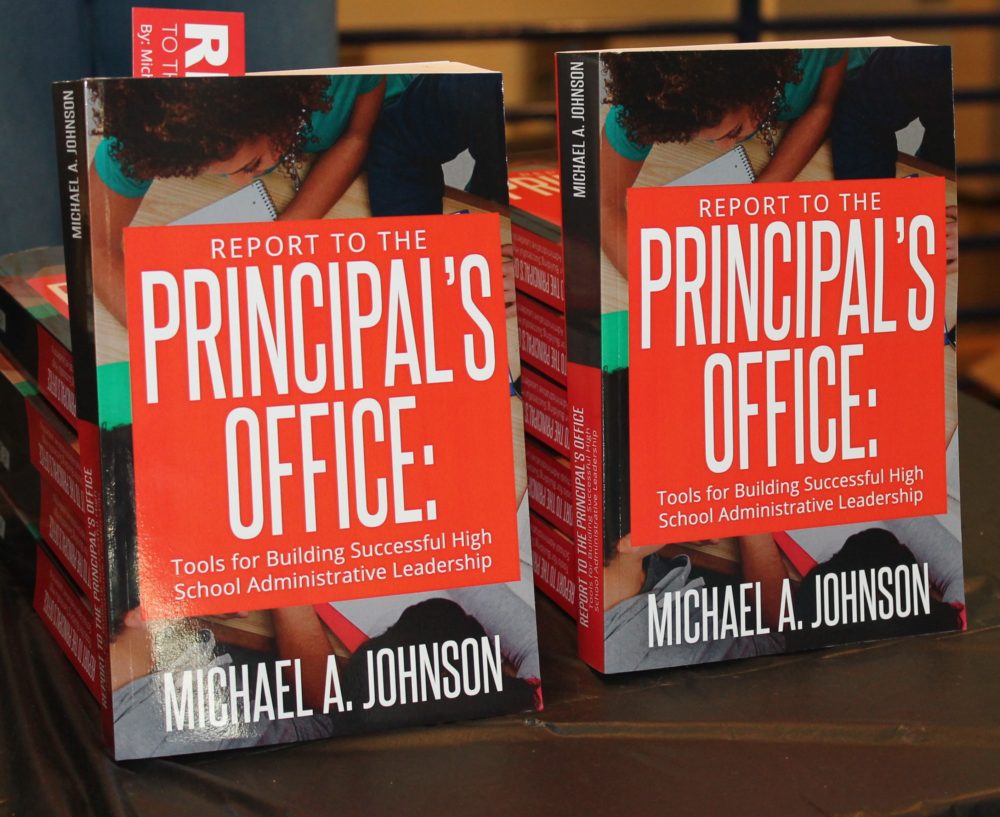
Even if you are committed to pursuing an educational leadership position, remember the real-world impact of your potential role. Strive to be the best in your current role, not just for the sake of your school-building leadership job aspirations but because your actions can shape the future of children. Wait, observe, think, and listen for the authentic ‘heart’ and ‘head’ calling you into a leadership role. If the calling is true and accurate, it will persist until you answer correctly and purposely. Remember, schools deal with real people, not widgets. Your leadership can turn dreams and aspirations into reality; SFMs are not just abstract data points or names attached to official documents.
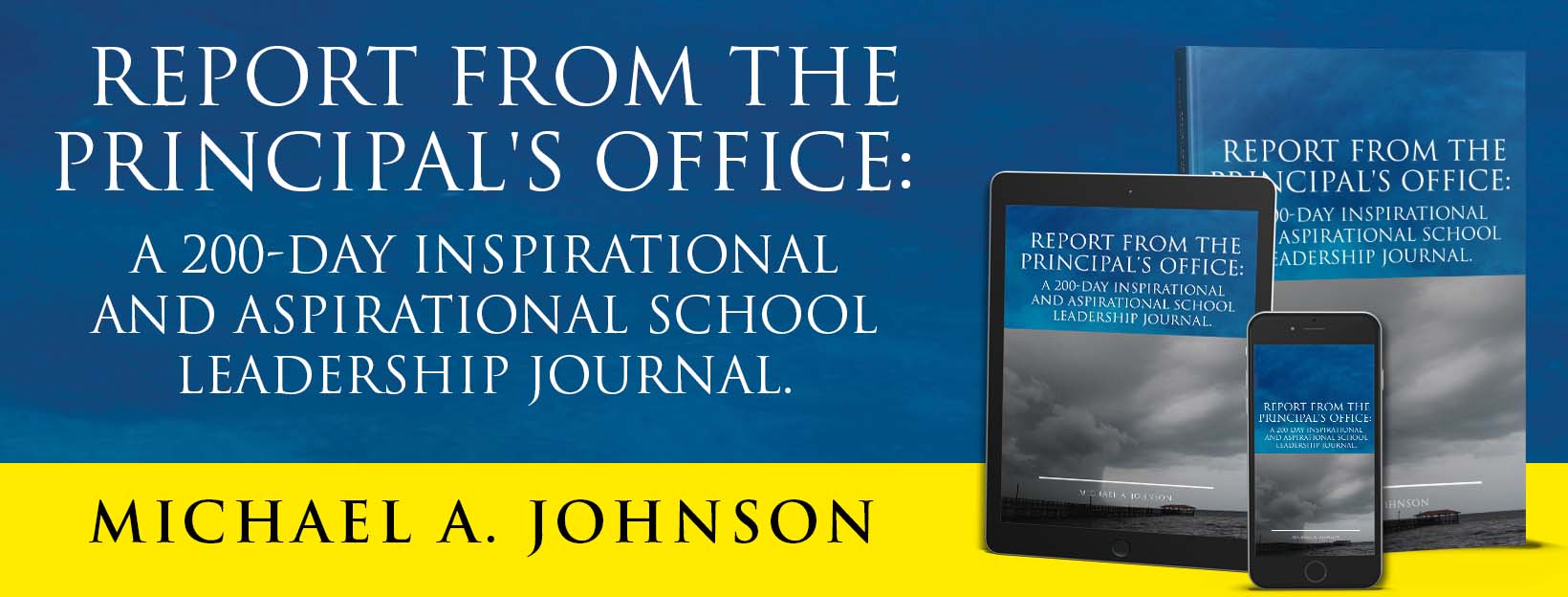
Perhaps the career advancement grass looks greener on your neighbor’s (appointed AP or principal) side of the fence because you don’t see all the extra time, hard work, planning, and strategic commitment to unpaid hours they put in to make those positions work! —So, be careful and know what you are asking for aspiring school administrators because (after studying this book) you might get that position!
Next: Part 2, The state/local SBA job requirements, the official administrative SBA job posting, and the applying process is the process, so meet and follow them faithfully.
